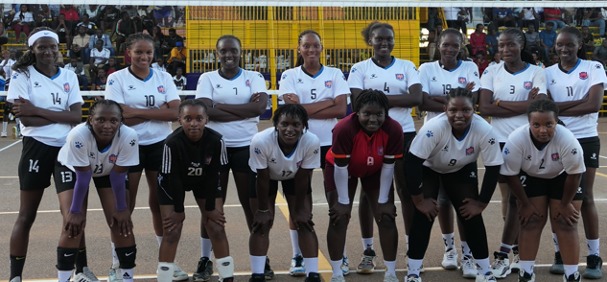By Bill Dan Arnold Borodi
Uganda Christian University (UCU) continues to hold its reputation as a hub for elite sports development in the country, producing top-performing athletes across various disciplines. Often likened to professional U.S. college sports programmes, UCU’s programme is recognised for its structure, professionalism, and emphasis on holistic athlete development.
“To me, this is the most elite sports programme in the country. It’s very professional, focusing on the full development of the athlete,” sports journalist and UCU Alumni Ian Asabo says.
The university has seen several of its athletes excel nationally and internationally. Notable names include Hanisfa Muhammad, who now plays netball in the UK, Abby Priscilla, who plays basketball in the US, and Ivan Magomu and Alex Aturinda, both members of the national rugby team.
UCU’s sports programme is a big advertisement tool for the university, a view the sports coordinator Sam Lukaire acknowledges. “In rugby, we had a good run from around 2007 when the best students in high school would consider joining UCU,” he noted.Beyond rugby, UCU has been renowned for its women’s football and basketball teams, the men’s basketball team and the netball team all of which regularly compete in top leagues and national tournaments. The combination of competitive athletics, academic opportunities, and spiritual development tends to make UCU a top choice for student-athletes.
Challenges in the programme
However, the COVID-19 pandemic marked a turning point. The pandemic hit the entire sports ecosystem hard, and UCU was no exception. with campus closures and reduced university revenue.
Three years after the pandemic, the sports teams while still competitive have faced challenges which has left people asking if there has been a decline in their performance. The students in the sports teams share that some things have changed.
Athletes for example have raised concerns over reduced meal provisions. Currently, UCU provides lunch and supper for them, but not breakfast.
“Right now, the university only provides lunch and supper, I hustle to get breakfast every day, and this affects my performance,” a basketball player who requested anonymity said.
Nutritionists argue that breakfast is a crucial meal for high-performance athletes, helping them maintain energy and cognitive function.
Lukaire however explained that privatisation of the former university-run dining hall, Janan Lumum, has caused constraints.
“When the university owned the dining, it was easier to budget for meals, now the costs have increased,” he said.
“Before COVID-19, the university sports programme supported about 150 students with meals and accommodation, today we are only able to support around 100. A team like basketball had around 18 to 20 players, we now have only 14,” he added.
He further revealed that the cost of providing three meals a day for 150 athletes per year would total nearly Shs150 million excluding the costs of tuition scholarships, medical care, allowances and transport among other expenses.
Lukaire is keen to note that the university administration is supporting the programme and they should be appreciated.
“We need to start from a place of gratitude, despite the financial strain and lower student enrolment, the university still provides lunch and supper to athletes, and some still receive scholarships,” he said
Corporate sponsorship?
As resource constraints mount, critics and stakeholders are questioning why UCU has not gotten sponsorship for its various sports programmes.
“Why haven’t some of these teams secured corporate sponsorship by now?” asked Asabo. “There’s so much talent and brand potential here.”
Lukaire responded that while the teams are open to sponsorships, many potential sponsors fall short of expectations.
“Someone offers Shs20 million for sponsorship but demands brand visibility from a team worth Shs300 million,” he said. insisting that a sponsor should be able to meet the player’s maintenance costs as a bare minimum.
There have also been complaints about limited support from UCU’s own alumni.
“I don’t know why alumni don’t show up for their sports,” said Asabo. “They don’t even appear for league games, we are supposed to support the team but I don’t know what’s wrong,” he adds
Lukaire echoed the concern, adding, “In the U.S., universities like North Carolina and South Carolina are supported by their alumni. Here, we have some of the best coaches in Uganda. Why can’t our alumni say: ‘Let’s start a coaches’ fund’ as alumnus? That would motivate our coaching staff.”
Controversy recently surfaced over reports that the Lady Cardinals, UCU’s women’s football team, had to purchase their own jerseys. Lukaire confirmed the reports but clarified that it was a voluntary initiative by the team.
“The university has enough jerseys in stock,” he said. “But if a team chooses to have personalized kits with names or a unique design, that’s their choice. The university provides the standard gear; no team is being forced to buy kits. It’s more about team identity and cohesion.”
Apart from external challenges, some students believe there are internal challenges within the athlete community, including a lack of self discipline among the sports men and women.
“We complained about the state of the gym but even when the gym was fixed, most of us don’t show up. Discipline starts with us athletes taking care of ourselves,” the basketball player shared.
Despite the challenges, UCU’s sports programme continues to remain a respected place of talent development and great athletic performance. Stakeholders agree that with stronger support systems, especially from alumni and sponsors, UCU can reclaim and surpass its pre-COVID performance levels.


